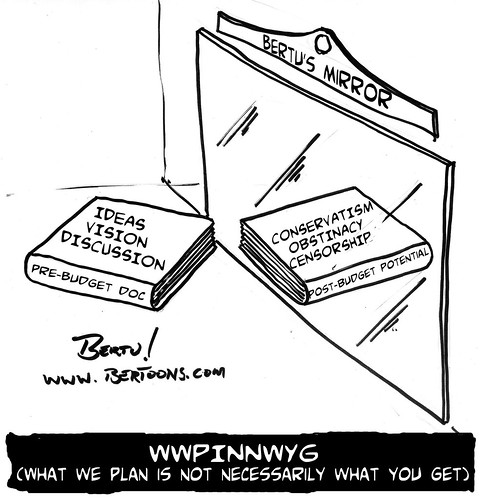It’s that time of the year when the arrival of the weekend heralds the packing of the overnight bag and a trip to some destination within driving distance of the Grand Duchy. It also means that the quality of the articles submitted to the Indy suffers from a telegraphic transformation as it is well nigh impossible to maintain a steady flow of coherent thought at about the same time as the mind wanders in parallel with what the encyclopaedia of the world has to throw at us.
Put briefly, the normal source of inspiration for the weekly J’accuse fare comes about as a not too summarised précis of the events populating the Internet of the previous week. At this time of the year, when the walking shoes are put on, we also add an extra set of feelers and listen to what the rest of the world is offering beneath its sun-kissed (hopefully) skies. For example, while the TV in some drive-by motel might announce record figures at the Edinburgh Fringe, and thus remind us that Art is more than alive and kicking in the more rational parts of the world, we prefer to sample this first hand by going out and about.
Walk through the cathedrals of illumination that are the bookstores in Blighty and you only stop for a minute to question whether that feeling of weirdness ever existed before getting your hands on a compendium of erotic literature that spans the centuries (The Collected Erotica – 2000 years of erotic literature available online at Waterstones) and pay for it at the check-out counter without feeling like you have violated a myriad laws of the state. “Life is easy abroad,” they will tell us Luxembourgers and Bruxellars with a wry smile. “You have no business reminding us how sad and oppressed the people of Malta are” they will say as they admonish us with much pointing of fingers and many a jealous gaze.
Intransigence
Funny how summer tends to bring out a regular parade of individuals intent on negating the attachment to Malta of their fellow countrymen simply because we do not have Malta as our one place of fixed abode at the moment. Apparently, we are no longer to be called expats but transfrontaliers or something of the sort. The phenomenon is not new on the continent; a Frenchman who commutes to Luxembourg for work will always consider himself to be a Frenchman rather than anything else and will be more worried about the advances (or otherwise) of Brother Sarkozy than in the intrigues of Juncker’s Luxembourg.
We are, however, the brigade that exists outremer (overseas) and that regularly pours articles of concerned disdain about the mishandling and mismanagement of our country. Our unbiased judgement (by national standards) is more often than not mistaken as some form of intellectual snobbishness since we can afford to stand aloof – far enough that we do not even need to peg our noses to avoid the stink. Woe betide mollycuddled (sorry Raphael, I like this version more – another jaccusism) expatriate tax-avoiders should they type even one word to criticise the goings on in the land of Milk and Honey.
Tired of the PLPN rant, I resolved to use the eighth month of the year for mental regeneneration in the hope that new ideas replace the mantra of old. No more Fear and Loathing in Valletta for us. In the meantime we notice, without any trace of humility, that the blog “e-volution” has been a partial catalyst to some form of mediatic development that was previously untraceable. Paul Borg Olivier will choose his boat trips more carefully next time around and he will do so because – notwithstanding all cynicism and conspiracy theories – such trips no longer go unnoticed.
Emancipation
Last week I criticised the Front Against Censorship for its choice of medium for protesting against the current state of the freedom of expression. The reaction to my criticism has prompted much of this article this week. I stand by my original statement – not with any intention of discouraging the young lads (ah, how I yearn for the folly of youth) from their task, but rather to urge them into more proactive action. Bring the Fringe to the streets of Malta. Fill space with ideas and darkness with light. The protest is not just a means in itself, it could become the very expression that the Front are rightly reclaiming.
The Internet is a wonderful medium of empowerment and expression. It is still, I believe, an unknown factor in Maltese social life and politics. We have still to see what the numbers are behind the equations – what is a “popular website”? , “What can we consider to be the maximum threshold for a Maltese website in terms of hits?” “how net literate are we?”. New battle lines are being drawn on the ether as Google controversially toys with the concept of “internet neutrality”. After its bumpy honeymoon with the Chinese giant, Google still seems to be hungry for power that ill befits its slogan of “Do no evil”.
Books
No overnight bag would be complete without a book to accompany you on the journey. I still have not got used to the e-book reader thanks to the hundreds of snags afforded by proprietary rights so I still depend on the printed word. I’m stocking up on a mixture of classics this summer – books I should have read long ago. From On the Road (Kerouac) to Kafka’s Castle through to a gigantic compendium on the history of Christianity. The best catch of the week has to be Thucydides’ History – an illustrated bumper hardback that is a veritable time machine into the days of our forefathers.
When I tire of the books, I switch to photography and editing – a new, very amateurish hobby of mine. Books and cameras will accompany me on any journey. During that journey I will sample the goods and delicacies of the lands I visit – like the memorable Winston Churchill burger I once washed down in Chaucer’s Canterbury. It was a home-made burger with all the right spices coated in sweet onions and a lovely capping of melted Stilton. As rudely pleasant as the Wife of Bath (God bade us for to ‘wexe’ and ‘multiplye’).
Art cannot die because if art dies then mankind is dead. It accompanies us to the depths of the earth. This expression business has really stuck in my head more than any other issue that has been in the headlines in Malta recently. It is a sad situation at the moment because it is a sad reflection on a country with so much potential that can only be wasted thanks to our trend for internecine warfare and jealous ideals. Frankly, I’m switching off the thinking cap for the next few weeks as I absorb, absorb, absorb.
For the world has so much to offer. If we’re prepared to listen that is.
www.akkuza.com is sort of packing its bags every weekend this summer. Join us in the interim and check out our views. As we type, publisher Chris Gruppetta has guest posted about what he thinks is the next big step in the freedom of expression saga. Gesundheit.






